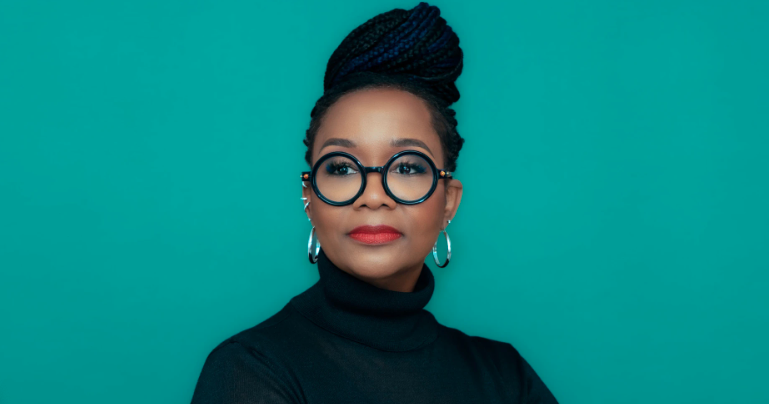Black Engineers Are Underrepresented in the Workforce. She's Working to Change That
Janeen Uzzell, CEO of the National Society of Black Engineers.
Photo: Courtesy Subject
Despite engineering firms increasingly adopting inclusive hiring practices, Black employees made up only 5.1 percent of the U.S. science and engineering workforce in 2019, according to the National Center for Science Engineering Statistics. Janeen Uzzell is focused on radically increasing those numbers. The CEO of the Alexandria, Virginia-based National Society of Black Engineers (NSBE), a group dedicated to improving recruitment and retention, Uzzell is the former chief operating officer of the Wikimedia Foundation in Washington D.C. and worked for 16 years at General Electric. She sat down with Inc. recently to share her business journey, explain why the tech industry still holds misconceptions about Black engineers, and discuss the steps her organization is taking to help.--as told to Xintian Tina Wang
What brought you to NSBE?
I am an engineer today because of one of my older cousins who passed away at a young age. He was studying mechanical engineering at the time in college, and I was finishing high school. He told me that you're a woman and you are good at math and science. And you'll always have a job if you become an engineer. He was pretty forthright with me that I should consider doing the work.
When I grew older, my sister pushed me to be a revolutionist and she really made sure that I didn't get whitewashed. Even though I grew up in a Black house and went to a Black church, everything else that was happening in my life was very White. I was at a White high school, and I played field hockey. At that time, I didn't know where this was going to take me. We live life forward, but we experience it backward.
And my mom said to me, you have done important things in your life and in your career. But taking the CEO role at NSBE will be the most important opportunity for you to give back. And therefore, it will be by far the most important thing that you do moving forward.
What contributes to the underrepresentation of Black engineers in the U.S. today?
The common misconception is that we Black engineers don't exist. But this is not true. The Black engineering undergraduate student enrollment grew from 29,070 in 2019 to 30,027 in 2020, according to a 2021 survey conducted by the American Society for Engineering Education. What's happening, though, is once we get into the workplace, some employers don't think we have the ability to stay there long-term.
The state of Black America does include highly educated and qualified Black people in the science, technology, engineering, and mathematics world. We're not just the consumers of technology, but also the builders and the solvers in this space. Being a part of the movement here at NSBE, we help to manifest this idea.
What initiatives has NSBE launched recently to challenge these misconceptions?
This summer, we had classes for students from third grade to sixth grade from different parts of the world. We were doing a session on empathetic engineering and design, teaching them that when you're creating something, you can't just think about yourself. You have to create experiences where you think about other people. The world of technology is limited in that way now. And every experience that an end user has is subject to the bias of the design team that has built it, which is why it's so critical to have a diverse engineering and tech team.
We also have partnered with schools of engineering across the U.S., and their deans are part of a committee led by our chief program officer, Dr. Rochelle L. Williams. In this program, we constantly offer guidance, direction, and insight on their curriculums. We are looking for ways to close the racial gaps by teaching from a more diverse standard. We want to let these Black engineering students be heard if they are at predominantly White institutions. We'd like to promote and elevate their experiences based on their feedback.
What would you say is the biggest challenge that NSBE has to overcome right now?
In 1975, when NSBE was founded by six Black engineers from Purdue University, they wanted to connect themselves in a community to increase the number of Black students in the STEM field. But the ability to become relevant from a pop culture perspective is still a concern right now. We are heading into our 50th year soon, and the work of an engineer is impactful. We are currently working on branding ourselves on social media to engage the conversation. We want to stay relevant to our audience today and continue to ensure that we've got another 50 years.
How has NSBE guided companies to create an inclusive environment for talent in the engineering world?
We hosted a DEI training with some of our board of corporate affiliates. We did it through a virtual reality project, where they were walking and talking and watching something played out in front of them. The teaching was meant to remind employers to learn a name that they couldn't pronounce or have a conversation with international employees. What does it mean to have a group of Black engineers come and work for you for the summer and have names that you never pronounced? It sounds so simple, but it matters tremendously to your employees so that they know they are respected and valued.


